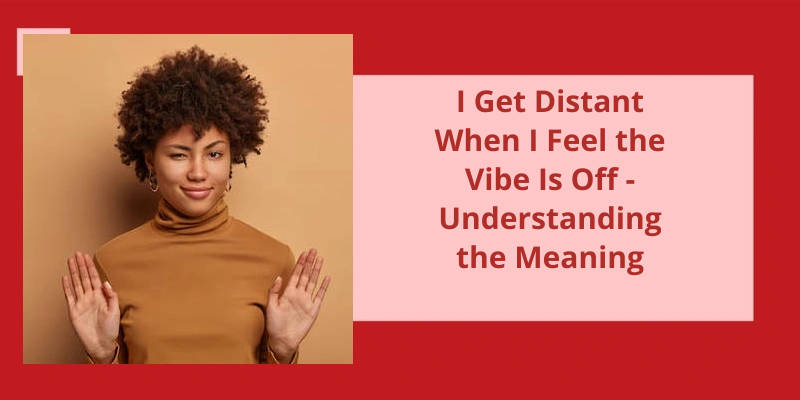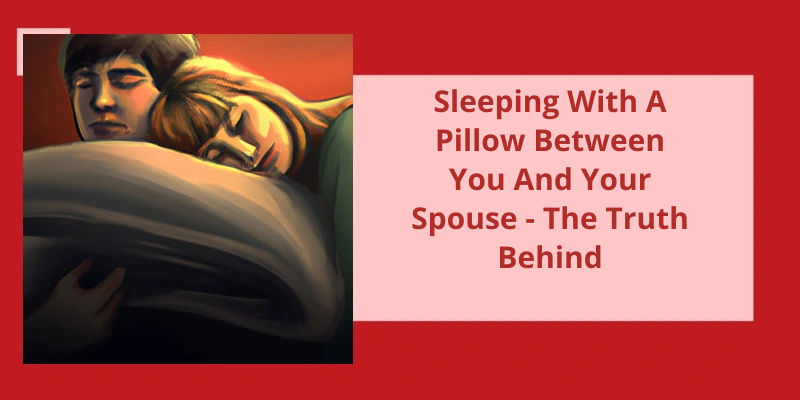, a close friend of yours confronted you about certain behaviors you were exhibiting that hurt their feelings. At first, you were taken aback and didn't understand why they’d feel this way, as you never intended to be rude or hurtful. However, upon some introspection and reflection, you realized that there were certain actions or words that you were using that may have been perceived as rude or unkind. This newfound awareness made you wonder, is it possible to be rude without knowing it? In this article, we'll dive deeper into this question and explore the various reasons why someone may unintentionally come across as rude, as well as potential solutions to help prevent it from happening in the future.
Is Being Rude a Behavior?
Being rude is often considered inappropriate and unacceptable in most cultures worldwide. It’s a behavior that can cause emotional distress to the people on the receiving end and can even escalate a situation. What constitutes as being rude can vary from person to person, as different people may hold different standards and expectations of how others should behave towards them. In general, however, being rude is considered a negative behavior.
Some people may engage in rude behavior as a means of asserting their dominance over others. Such behavior is often indicative of underlying insecurities, low self-esteem, and a deep-rooted need for control.
They may not understand the social norms and expectations that govern polite behavior. They may have grown up in an environment where rudeness was tolerated or even encouraged, or they may have had limited exposure to different social situations and cultures.
It can take many forms, from being disrespectful to ignoring social norms, to behaving inconsiderately or aggressively.
However, it’s important to recognize that being rude isn’t only detrimental to the person on the receiving end but also to the person exhibiting the behavior. In this article, we will explore the signs and effects of rudeness and provide tips on how to overcome this negative behavior.
How Do You Know if You Are Rude?
Other times, people may be rude because they simply don’t know any better. This can be due to lack of social skills or cultural differences. In some cultures, certain behaviors that may be considered rude in others are perfectly acceptable. Therefore, it’s important to be aware of cultural differences and to always strive to be respectful of others.
One way to know if you’re being rude is to pay attention to how people are reacting to you. If people seem uncomfortable, offended, or upset by what you’re saying or doing, it may be a sign that you’re being rude. It’s important to listen to others and be open to feedback.
Are you speaking in a calm and respectful tone? Are you using appropriate language? Are you taking the other persons feelings into consideration? If you answered no to any of these questions, it may be a sign that you’re being rude. It’s important to take responsibility for your own behavior and make an effort to be more thoughtful and considerate of others.
It’s also important to be aware of your body language. Are you making eye contact and facing the person you’re speaking to? Or are you looking away, fidgeting, or crossing your arms? These nonverbal cues can be just as important as what you say. If you’re sending mixed messages with your body language, it may be a sign that you’re being rude.
Finally, it’s important to recognize that being rude isn’t just about what you say or do, but also about how you treat others on a daily basis. Are you consistently showing kindness, respect, and empathy towards others? Or are you often dismissive, critical, or judgmental? Building positive relationships with others requires effort, and it’s important to make a conscious effort to be kind and respectful in all of your interactions. Overall, being aware of your behavior and attitude, listening to feedback, and striving to be respectful and considerate can help you avoid being rude.
How to Apologize if You Have Been Rude to Someone
- Admit that you were wrong and take responsibility for your actions.
- Show remorse and express your willingness to make amends.
- Listen to how your actions affected the other person and validate their feelings.
- Offer a sincere apology and ask for forgiveness.
- Take steps to prevent similar behavior in the future, such as improving communication or anger management skills.
- Follow up with the person to show that you’re committed to repairing the relationship.
Source: Here’s How to Expertly Deal with Rude People (& What to Say!)
When it comes to describing a rude person, there are many synonyms and similar words that can be used to convey their lack of manners and consideration for others. One common example is to describe them as disrespectful or discourteous, while others may use the term impolite. However, it’s important to remember that labeling someone as rude based on their behavior can be subjective and it’s important to approach any situation with understanding and empathy.
What Is the Best Way to Describe a Rude Person?
Have you ever encountered someone who seems to deliberately step on your toes, or say things that are clearly hurtful? Chances are, youve met a rude person. A rude person is someone who shows a lack of manners or consideration for others. They may exhibit behavior that’s disrespectful, discourteous, or impolite.
One way to describe a rude person is to use synonyms. For example, instead of saying someone is rude, you could say they’re disrespectful, discourteous, or impolite. These synonyms all convey the same idea as rude, but may not come across as harsh. Another option is to describe specific actions the person has taken that are disrespectful. For instance, you could say, “He interrupted me while I was speaking, which was quite disrespectful.”
When it comes to describing a rude person, it’s important to be mindful of your tone and language. It’s easy to become frustrated or angry when someone is being rude to you, but responding in kind will only escalate the situation. Instead, try to remain calm and objective. Use language that’s neutral and descriptive, rather than accusatory or judgmental.
For instance, you could say that their behavior is typical of someone who lacks manners or consideration for others. You could also explain how their actions affect those around them, such as by causing hurt feelings or creating a hostile environment. By contextualizing their behavior, you may be able to help others understand why the persons behavior is problematic.
Finally, it’s worth noting that some behaviors may be considered rude in some cultures but not in others. If youre describing a rude person from a different cultural background, it’s important to be mindful of these differences. What may seem impolite to you may not be perceived as such by someone from a different culture. In these situations, it may be helpful to seek out cultural guidance or advice to ensure that youre conveying your message clearly.
Whether you use synonyms, describe specific behaviors, or contextualize their actions, it’s important to avoid language that’s accusatory or inflammatory. Remember that language can have a powerful impact on how others perceive the person youre describing, so choose your words carefully.
Tips on How to Deal With a Rude Person
- Remain calm and composed as you respond to them.
- Avoid retaliating with rude or aggressive behavior.
- Try to understand the root cause of their rudeness and address it where possible.
- Set clear boundaries and expectations for how you expect to be treated.
- Consider speaking to them privately and expressing how their behavior is affecting you.
- Don’t take their behavior personally – often, rude behavior is a reflection of the other person’s character, not yours.
- Respectfully disengage from the conversation or interaction if it becomes too difficult to handle.
- Remember that you’ve the power to choose how you respond to others, and that you don’t have to tolerate rude behavior.
Conclusion
, there was a heated discussion in which participants were debating whether or not it’s possible to be rude without knowing it. And the answer is clear: yes, it’s very possible to unknowingly act in a way that can offend others. In fact, it may be happening to you right now, and you’re likely unaware of it. Understanding the nuances of social interactions, being introspective about our own behavior, and actively working to improve our communication skills are all crucial strategies for avoiding rude behavior. It’s important to remember that everyone makes mistakes, but it’s our willingness to learn from them and grow that defines us as individuals. At the end of the day, our goal should be to treat others with kindness, respect, and compassion, even when we may not realize we're acting in a way that falls short of these ideals. By doing so, we can create a more harmonious and empathetic society for all.






